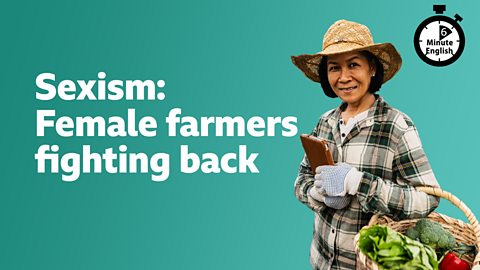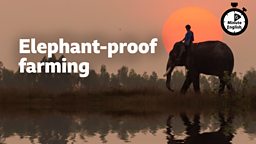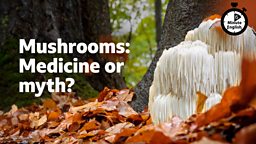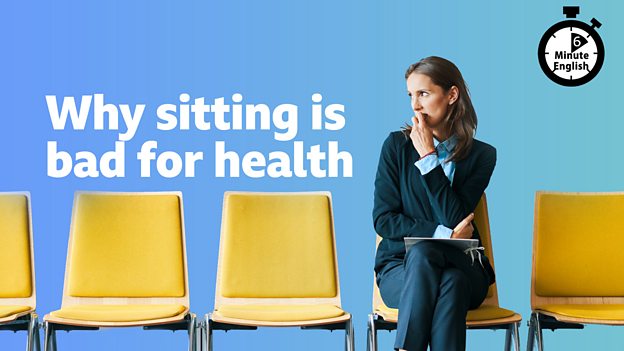6 Minute English
Intermediate level
Do you have eco-anxiety?
Episode 230810 / 10 Aug 2023

Introduction
A growing number of people around the world are experiencing something psychiatrists are calling 'eco-anxiety', an overwhelming sense of hopeless and doom due to the current climate situation. Neil and Beth discuss this and teach you some useful vocabulary.
This week's question
In Australia, an animal thought to be extinct has been spotted for the first time in over fifty years. But is the animal:
a) a shark?
b) a lizard? or,
c) a parrot?
Listen to the programme to hear the answer.
Vocabulary
compassion
strong feeling of sympathy for someone and the wish for them not to suffer
what a something
phrase used to intensify the thing you are talking about; e.g. What a mess! What a nice surprise!
ball game
set of circumstances that control how a situation happens
impassioned
strongly motivated to express emotion or take action
movement
group of people with the same beliefs, ideas and aims
working life
the period of life spent in employment, between leaving school and retirement
TRANSCRIPT
Note: This is not a word-for-word transcript.
Neil
Hello. This is 6 Minute English from BBC Learning English. I’m Neil.
Beth
And I’m Beth. Switch on the TV or read a newspaper and it's full of bad news about the environment. But climate change is damaging more than just the planet's health - it's affecting human health too.
Neil
A growing number of people around the world are experiencing something psychiatrists are calling, eco-anxiety. Eco-anxiety involves feeling grief, guilt, fear or hopelessness about the future of the planet due to climate change.
Beth
Of course, direct victims of climate change suffer most. Flood survivors experience depression and anxiety, and people breathing polluted air are at higher risk of dementia. But according to the Institute of Psychiatrists, just reading about the state of the planet in the news is causing stress and anxiety.
Neil
In this programme on eco-anxiety, we’ll be learning some useful vocabulary related to this worrying topic… and hopefully be hearing on some happier environmental news as well.
Beth
I hope so, Neil. With so much bad news, it's sometimes hard to feel optimistic about the future.
Neil
Well, here's a question about some good climate news for a change. In Australia, an animal thought to be extinct has been spotted for the first time in over fifty years. But is the animal:
a) a shark?
b) a lizard? or,
c) a parrot?
Beth
I'll guess it's a shark.
Neil
OK, Beth, I'll reveal the answer later. Unsurprisingly, many of those suffering from eco-anxiety are young people. When BBC Radio 4 programme, Woman’s Hour, spoke with veteran environmentalist, Judy Ling Wong, they asked her if she was worried for young people today:
Judy Ling Wong
I have tremendous compassion for them because what a mess we have left the world in, our generation, and the generation before. Of course, you know, the science is so advanced now… very much in the past, the science would say, yes we think, perhaps… we perhaps have these models… now we have the exact science, so it is an absolutely different ball game… we actually know what to do now. It is about getting on with it, and the young people are the furthest ahead in this they can see the future as theirs and they’re impassioned to do something about it.
Beth
Judy feels compassion – a strong feeling of sympathy for young people, and the wish for them not to suffer. She blames older generations and uses the phrase what a mess to emphasise that the planet is in a bad shape. You can use the phrase what a something to intensify the thing you're talking about. For example, if someone gives you a birthday present you might say, ‘What a nice surprise!’
Neil
But Judy is optimistic. The science on climate change is much more accurate than it used to be, for example, we know that moving away from fossil fuels would be a big help. Science has changed the ball game – the set of circumstances that control how a situation occurs.
Beth
Knowing exactly how to stop climate change has impassioned young people – they feel strongly motivated to take action. And, as it turns out, taking action may be one of the most powerful antidotes to eco-anxiety: actually doing something to combat climate change reduces feelings of helplessness. Here’s Judy Ling Wong again speaking with BBC Radio 4’s, Woman’s Hour:
Judy Ling Wong
When the Institute of Psychiatry published its special issue on climate anxiety, one of the papers pointed out that if you can do something about it, if you feel part of the movement to change things or to stabilise things, then you feel much better. And also, you know, at the moment the government is trying to reach net zero by 2050 and all that, and they committed to creating 2 million new green jobs. Now, if young people and activists think about this… if you have a green job you're actually dedicating your entire working life to building a green sustainable future, and that has a huge effect on your psychology.
Neil
Judy urges young people to join a movement – a group of people who share the same beliefs and ideas. Being part of the solution, not the problem, helps reduce anxiety and with new green jobs, young people can protect the environment their entire working life – the period of life spent in employment, between leaving school and retirement.
Beth
And Judy’s hopefulness is shared. Recent polls showed that the majority of people are worried about climate change and are prepared to make changes… finally, some good news. And speaking of good news, what was the answer to your question, Neil?
Neil
I asked which ‘extinct’ animal has recently been spotted in Australia. You guessed it was a shark, which was… the wrong answer. Actually, it was a lizard - the earless grassland dragon, a native to east Australia that was last seen in the wild in 1969. OK let's recap the vocabulary we've learned from this programme on eco-anxiety, starting with compassion – a strong feeling of sympathy and the wish for people not to suffer.
Beth
The phrase what a… something is used to intensify the thing you’re talking about, for example, What a mess! or What a nice surprise!
Neil
The ball game refers to the set of circumstances that control how a situation happens.
Beth
If you’re impassioned, you’re emotionally motivated to do something.
Neil
A movement is a group of people with the same beliefs, ideas and aims.
Beth
And finally, your working life is the period of life spent in employment, between leaving school and retirement. Once again, our six minutes are up! Join us again next time, here on 6 Minute English. Goodbye for now!
Neil
Bye!
Latest 6 Minute English

Sexism: Female farmers fighting back
Episode 231228 / 28 Dec 2023
How can female farmers beat rural sexism?



Invasive species: Why don't we eat them?
Episode 231207 / 07 Dec 2023
Could we eat invasive species?

What and where is Little Italy?
Episode 231130 / 30 Nov 2023
Mozzarella, ricotta, cannolis and focaccia... Where are we? Little Italy of course!

Social media and teenage health
Episode 231123 / 23 Nov 2023
What are the health risks of social media for teenagers?








Sounds that make you want to scream
Episode 230928 / 28 Sep 2023
Are there any sounds you find upsetting?




The stories behind our names
Episode 230831 / 31 Aug 2023
What do our names reveal about our culture and family history?


Are you unhappy at work?
Episode 230817 / 17 Aug 2023
Does work leave you feeling bored and exhausted?







Is it wrong to eat plants?
Episode 230629 / 29 Jun 2023
Should we treat plants with the same consideration we treat animals with?



The art of subtitling
Episode 230608 / 08 Jun 2023
Hear how subtitles can help bring TV and movies to life

Ecotourism: good or bad?
Episode 230601 / 01 Jun 2023
We discuss the growing popularity of ecotourism.

Can climate change cause more disease?
Episode 230525 / 25 May 2023
With warming temperatures, mosquitos are now spreading to new areas, including Europe.



Ice and the origins of life on Earth
Episode 230504 / 04 May 2023
We talk about an essential element for life to thrive.

Women in politics
Episode 230427 / 12 Apr 2023
We discuss some of the reasons why women make up only 26% of the world's politicians.

What's the point of museums?
Episode 230420 / 20 Apr 2023
We discuss the role of museums in the 21st century and the items taken from different countries.

How culture affects sadness
Episode 230413 / 11 Apr 2023
What ways do you think culture can influence sadness?

Would you eat a Kalette?
Episode 230406 / 06 Apr 2023
Hear about a new kind of vegetable making an entrance in British kitchens

Do you get jealous easily?
Episode 230330 / 06 Mar 2023
Let's talk about the ugly green-eyed monster


Food and mood
Episode 230316 / 16 Mar 2023
We look at the link between what you eat and how you feel.

How to talk to a climate denier
Episode 230309 / 09 Mar 2023
The dos and don'ts of trying to discuss science with someone who doesn't believe in it

Losing your mother tongue
Episode 230302 / 02 Mar 2023
Hear the story of a woman who replaced her native Czech for English.

The health benefits of apples
Episode 230223 / 23 Feb 2023
Could 'an apple a day keep the doctor away'?


Doomscrolling: Why do we do it?
Episode 230209 / 27 Jan 2023
What is doomscrolling and why are we attracted to bad news? Listen to find out!

Exercise for the lazy
Episode 230202 / 22 Jan 2023
What's the least amount of exercise you should do to stay healthy?

Can AI have a mind of its own?
Episode 230126 / 26 Jan 2023
Hear about the software engineer who became 'friends' with his computer

Climate change: Are there too many people?
Episode 230119 / 13 Jan 2023
Does the size of your carbon footprint depend on where in the world you were born? Listen to find out!

The hidden life of buffets
Episode 230112 / 12 Jan 2023
Neil and Sam discuss buffet meals and the history behind them.

Songwriting
Episode 230105 / 05 Jan 2023
Writing a memorable song isn't easy. So is there an art to good songwriting?







